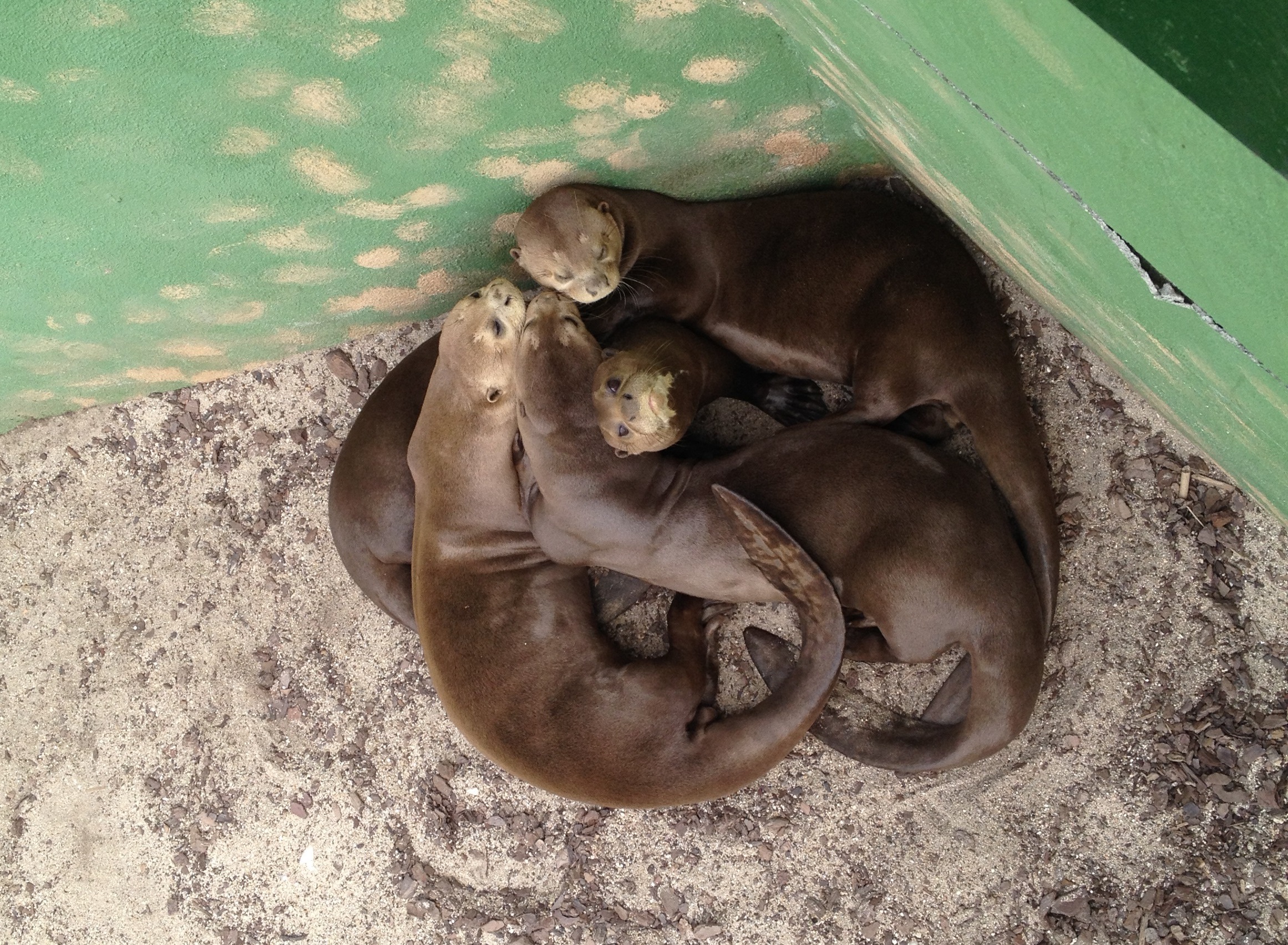Matchmaking for Giant Otters December 10, 2019
 Nowadays, we have so much to say about Brazilian giant otters (of course, native not only to Brazil but also to several other South American countries) that this week we have devoted almost a whole series of articles to them on the Zoo's website. We have already written about the five-year history of keeping giant otters in Budapest, as well as the process of resettling our giant otter, Alondra, who was transported from Budapest to Argentina, to the wild, through a resettlement programme.
Nowadays, we have so much to say about Brazilian giant otters (of course, native not only to Brazil but also to several other South American countries) that this week we have devoted almost a whole series of articles to them on the Zoo's website. We have already written about the five-year history of keeping giant otters in Budapest, as well as the process of resettling our giant otter, Alondra, who was transported from Budapest to Argentina, to the wild, through a resettlement programme.
Our latest news on giant otters is that on Tuesday, one of our female otters, called Cora, travelled to the capital of Spain, Madrid Zoo, where she became a member of the romp (the name for a group of otters) there. In exchange, however, Cora's sister Cumana, who remains in Budapest will be joined by a new male who will arrive soon, exactly from Madrid, essentially right after Cora's arrival, "by return post".
The new male, Cumana's future fiancé, is called Madid. Together with his companions, he is also seen in a picture we received from his Spanish colleagues, which shows similar otters there playing in a dogpile. Madidi, who will be nine years old in December, was originally born at the Dortmund Zoo and has been living in the Spanish capital's zoo since he was two. But now he is moving to Budapest and we hope will form a nice couple with Cumana. After all, the goal now is for us to have otter pups in the future: this is important not only because otter pups are very cute, but because the Brazilian giant otter is an endangered species. And, as Alondra's example shows, their zoo breeding is all the more important because zoo-born specimens may eventually be reintroduced to the wild.
By the way, we have an excellent relationship with the Madrid Zoo and Aquarium, with a long tradition. Not only because we are both members of the European Association of Zoos and Aquariums (EAZA), but also because we have successfully cooperated with regard to different animals in the past. For example, one of the Gorillas in Madrid, a female named Gorka, was also born in Budapest: she was born in 1996 as the successor to our two older gorillas, Liesel and Golo.